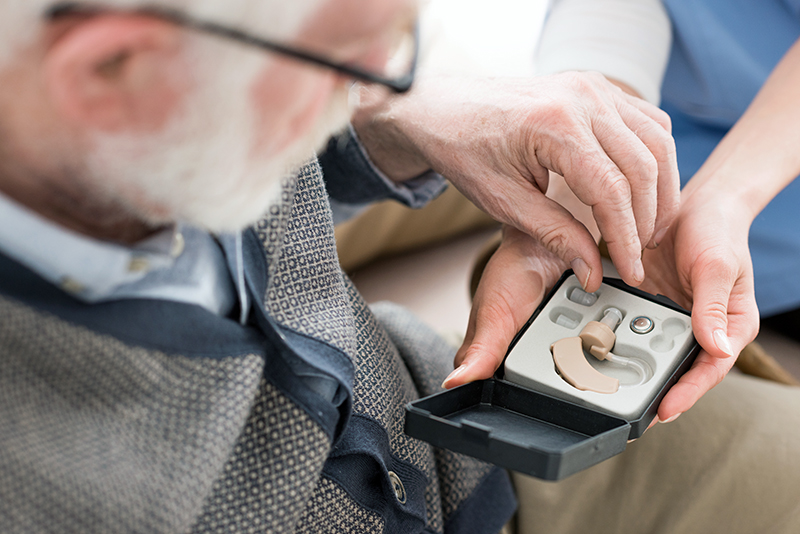
As individuals age, experiencing some degree of hearing loss becomes increasingly common. In fact, between the ages of 65 and 74, 1 in 3 Americans encounter age-related hearing loss, termed presbycusis. Aging, alterations in the inner ear, loud noise, certain medications, and health issues like high blood pressure and diabetes can all contribute to hearing impairment. Only about 20 percent of individuals who require a hearing aid utilize one, despite the prevalence of hearing loss. An audiologist provides insight into crucial factors to consider when choosing a hearing aid.
Choosing a Hearing Aid: What to Know When Selecting a Hearing Device
When selecting a hearing aid, the key differences must be considered. Although hearing aid devices do not restore regular hearing, they can amplify sound and diminish competing background noise. This allows for improved interaction with the surrounding environment, including better auditory perception during conversations, active participation in group activities, enhanced television viewing, and heightened awareness of surrounding sounds for safety.
Daily-Wear and Extended-Wear Hearing Aids
Extended-wear hearing aids: This type of hearing aid is not visible to others and is inserted into the ear by an audiologist. The device sits close to the eardrum and can remain in the ear longer without requiring a battery change, usually between one to three months. The device should be removed for swimming but can be worn during showering. It is necessary to visit the audiologist approximately every eight weeks to replace the device.
Daily-wear hearing aids: The user can insert and remove this type of hearing aid. Typically, it is worn throughout the day and removed at night. Daily-wear hearing aids are water-resistant and suitable for most activities; however, they should be removed during showering or swimming. The styles can range from behind-the-ear to in-the-ear models.
Understanding Your Listening Challenges is Essential
If you experience difficulty hearing in certain situations, identifying your hearing challenges can enable your audiologist to recommend the most suitable hearing aid. Take time to reflect on your most challenging listening scenarios, whether alone, with family and friends, or in a professional setting, and share this information with your audiologist. Collaborating with a team that evaluates your hearing test results and overall hearing loss is crucial, including understanding your listening challenges, listening goals, and lifestyle.
Selecting a hearing aid is a personalized process, as everyone’s hearing needs are unique. Cost and technology alone do not guarantee the best choice. Factors such as ear canal size, budget, and insurance coverage play a role. The best hearing aid is one chosen in collaboration with an audiologist.
Please keep in mind the following information:
You can undergo a trial period with a hearing aid before deciding. Choosing a hearing aid may initially seem daunting, but it is important to note that a 45-business-day trial period is available. This period allows you to carefully assess the hearing aid’s impact on your listening abilities and determine its suitability for everyday use. For instance, individuals with arthritis may find daily-wear devices challenging and prefer the lower maintenance of an extended-wear hearing aid.
Schedule Two to Three Meetings With Your Audiologist During the Trial Period
These sessions will enable your audiologist to make necessary adjustments to the instrument, ensuring it aligns with your needs. Furthermore, they will assist you in becoming acquainted with the various features of the hearing aid and addressing any queries you may have.
Additionally, we recommend to arrange a follow-up appointment with your audiologist six months after acquiring the hearing aid. This will be an opportunity to evaluate any improvements in your listening abilities and overall quality of life. The assessment will also provide an avenue for further enhancements in the functionality of your hearing aid.